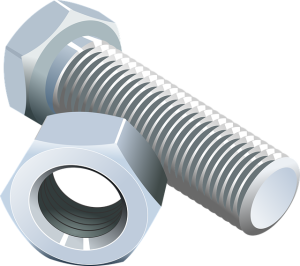
Have you heard of thread galling? It’s a common phenomenon from which fasteners suffer. Bolts and screws, for instance, can experience thread galling. When galling occurs, you may struggle to loosen or remove the fastener.
What Is Thread Galling?
Thread galling involves the fusion of two fasteners. Fasteners are often used in conjunction with other fasteners. Bolts are nuts are perhaps the most well-known fastener combination. With thread galling, the connected fasteners will fuse together around their threading.
What Causes Thread Galling?
Friction can cause thread galling. Fasteners are exposed to friction when tightened. As you tighten a nut on a bolt, the two fasteners will be exposed to friction around their threading. Friction leads to heat, which can essentially wear down the protective layer over fasteners.
Many fasteners are produced with a protective layer. Known as a finish, it protects the fasteners from corrosion as well as other forms of damage like thread galling. Heat can wear down this layer so that fasteners no longer receive this protection. When fasteners are exposed to friction and heat, they may succumb to thread galling.
Tips to Prevent Thread Galling
There are several things you can do to prevent thread galling. Using a slower drive speed, for instance, will lower the risk of thread galling. Speed affects friction. The faster the drive speed, the more friction the fasteners will be exposed to. Using a slower drive speed may take longer to install the fasteners, but it will protect them from thread galling.
You can apply lubrication to fasteners to protect them from thread galling. There are lubrication products that are designed specifically for fasteners. Bolt lubricant, for example, is designed for bolts. Before installing a bolt, apply a small amount of bolt lubricant to it. Bold lubricant and other lubrication products will reduce friction so that thread galling is less likely to occur.
Another tip to prevent thread galling is to ensure that the fasteners are clean. It may sound unusual, but dirty fasteners are more likely to succumb to thread galling than clean fasteners. Dirt facilitates friction. If you twist a nut onto a dirty bolt, thread galling may occur.
The size of a fastener’s threading will affect its risk of thread galling. Some fasteners have coarse threading, whereas others have fine threading. Coarse threading is thicker, so it’s better protected against galling than fine threading, which is thinner.
